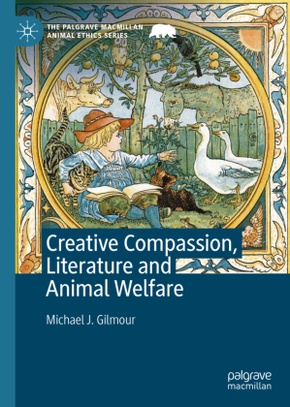
Creative Compassion, Literature and Animal Welfare
| Verlag | Springer |
| Auflage | 2020 |
| Seiten | 254 |
| Format | 15,6 x 2,1 x 21,8 cm |
| Gewicht | 472 g |
| Artikeltyp | Englisches Buch |
| Reihe | The Palgrave Macmillan Animal Ethics Series |
| ISBN-10 | 3030554295 |
| EAN | 9783030554293 |
| Bestell-Nr | 03055429A |
This book examines animal welfare themes in fiction, and considers how authors of the last two centuries undermine dominative attitudes toward the nonhuman. Appearing alongside the emerging humane movements of the nineteenth century and beyond is a kind of storytelling sympathetic to protectionist efforts well-described as a literature of protest. Compassion-inclined tales like the Dolittle adventures by Hugh Lofting educate readers on a wide range of ethical questions, empathize with the vulnerable, and envision peaceful coexistence with other species. Memorable characters like Black Beauty and Beautiful Joe, Ivan the gorilla and Louis the trumpeter swan, Hazel and Cheeta, Mr. Bultitude and Doctor Rat do not merely amuse. They are voices from the margins who speak with moral urgency to those with ears to hear. This broad survey of ethical themes in animal fiction highlights the unique contributions creative writers make toward animal welfare efforts.
Inhaltsverzeichnis:
Chapter 1. Introduction: The Parallel Voices of Modern Animal Welfare Movements and a Literature of Compassion.- Chapter 2. It's a Bad World for Animals: Activism and Sentimental Literature.- Chapter 3. Eating Meat, Eating Misery.- Chapter 4. Lessons on Animals and Science with Doctor Rat.- Chapter 5. St Francis Visits Rabbit Hill: Visions of Coexistence.- Chapter 6. A Sort of Temple: Religious Themes in Animal Literature.- Chapter 7: The Mark of Cain: Human Hunters and Animal Predators.- Chapter 8. Animals, Mourning, and Cat-lovin' Bastards.
Rezension:
"Each of the eight chapters comprising Creative Compassion opens with a personal account from activists ... witness to the transformative power of storytelling. ... the stories analyzed by Gilmour provide a clear perspective on the ways in which compassion-inclined stories can be used to promote change by encouraging readers to think critically about the ethical implications of the way they understand and relate to animals. In this regard, Creative Compassion, Literature and Welfare constitutes a magnificent example of academic activism." (Margarita Carretero González, Journal of Animal Ethics, Vol. 14 (1), 2024)
